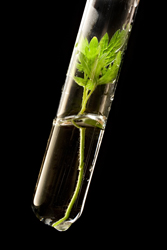More efficient management of intellectual property
The biotechnology sector is largely dependent on the proper dissemination of research results and findings. For new technologies and products to be transferred to industry, it is necessary to exploit patent intellectual property rights (IPR). However, public IP portfolios in the field of agriculture are often fragmented, hampering access and commercialisation of innovations. The main aim of the EU-funded ‘Towards European collective management of public intellectual property for agricultural biotechnologies’ (Epipagri) project was to establish joint IP management of public research organisations (PROs) involved in agricultural research. The activities of the network included the development of a patent information system with a database containing all patents owned by European PROs. Software was used for collecting, extracting and analysing IP information. The patents were subsequently clustered according to their technological applications to facilitate access and potential commercialisation. A study was also conducted to identify IP that is not being exploited by industry. Overall, the Epipagri network focused to overcome the current situation of the so-called ‘patent thicket’ or overlapping IPR to commercialise new technology. Dissemination of Epipagri’s patent pooling results to stakeholders will improve exploitation of IP rights in a cost-effective manner and facilitate technology transfer to industry. Finally, it is believed such an approach will enhance collaborations across Europe and make agricultural small businesses more competitive.



